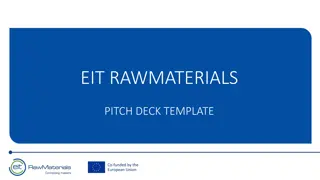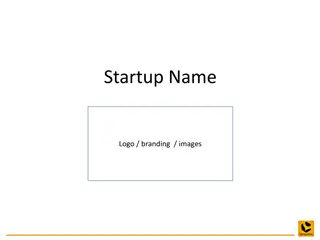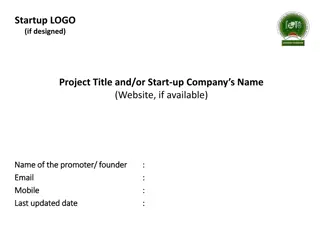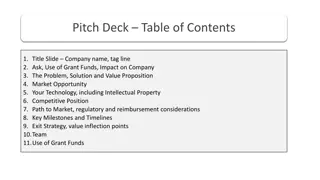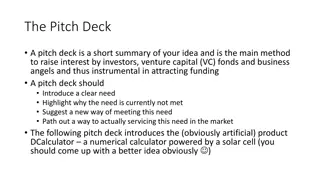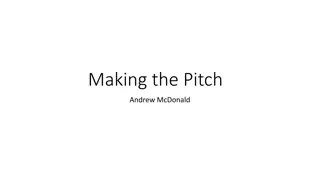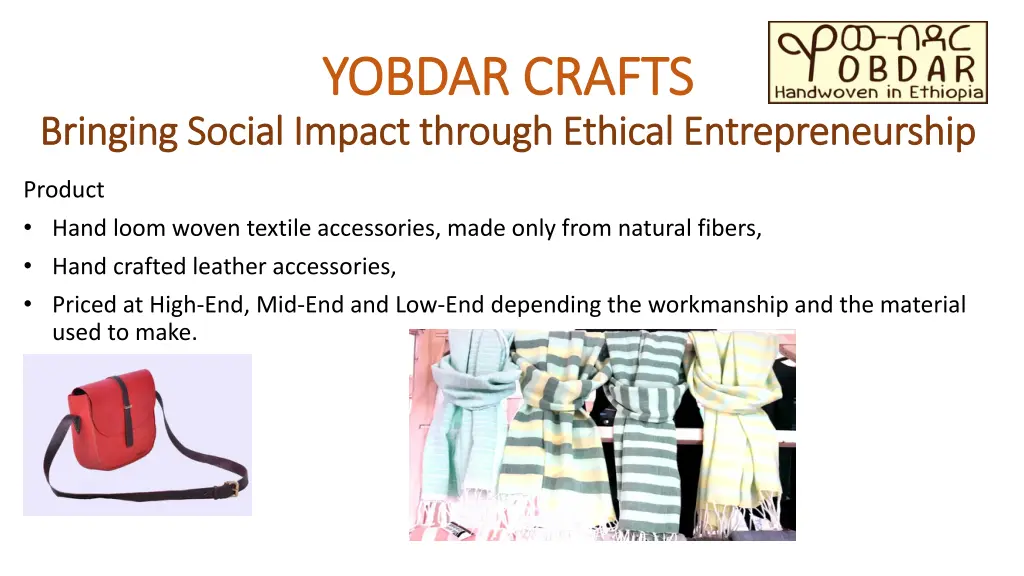
Crafting Social Impact through Ethical Entrepreneurship
"YOBDAR.CRAFTS focuses on bringing social impact through ethical entrepreneurship by offering hand-loom woven textile and hand-crafted leather accessories made from natural fibers. They address design challenges and aim to empower Ethiopian weavers while tapping into the global handicraft market. With a revenue model emphasizing exports and targeting urban, middle-class clients, YOBDAR.CRAFTS seeks funding to advance their mission."
Download Presentation

Please find below an Image/Link to download the presentation.
The content on the website is provided AS IS for your information and personal use only. It may not be sold, licensed, or shared on other websites without obtaining consent from the author. If you encounter any issues during the download, it is possible that the publisher has removed the file from their server.
You are allowed to download the files provided on this website for personal or commercial use, subject to the condition that they are used lawfully. All files are the property of their respective owners.
The content on the website is provided AS IS for your information and personal use only. It may not be sold, licensed, or shared on other websites without obtaining consent from the author.
E N D
Presentation Transcript
YOBDAR CRAFTS YOBDAR CRAFTS Bringing Social Impact through Ethical Entrepreneurship Bringing Social Impact through Ethical Entrepreneurship Product Hand loom woven textile accessories, made only from natural fibers, Hand crafted leather accessories, Priced at High-End, Mid-End and Low-End depending the workmanship and the material used to make.
Problems Design: Ethiopian hand loom woven textiles mostly don t have contemporary look as the demand of the worldwide modern market for crafts. Unutilized and Undervalued Hand Weaving skill: There are 600,000 traditional weavers in Ethiopia whom are marginalized and don t get fair payment. Poor quality of finishing and design of leather products: Due to different constraints, finishing and design quality of leather products don t appeal the global market. Solutions Adjusting the design and the texture of hand woven textiles by applying different techniques, we solve the problem of its marketability for the modern market. Building a system that reaches manufacturer owned cooperatives and weavers working from their premise throughout the country is important to utilize the existing hand weaving skill. Creating awareness and giving continuous training is crucial to produce high quality leather products.
Market Description Market Description The Global Hand Craft market reached a value of USD 526.5 Billion in 2017 and is expected to reach USD 984.8 Billion by 2023. The global handicrafts market has experienced a shift from ethnic designs to contemporary patterns. Ethiopia possesses various kinds of unique handicrafts because of its unique history, tradition and culture evolved by the various people of the country. Ethiopia benefits from the Free Trade Agreements (FTA). Ethiopia has suitable Agro-climatic conditions for the production of cotton, abundance of labor power, one of the world s largest livestock sector and high quality sheep leather which all these influence the availability of resources.
Clients Clients Local/international urban living, upper middle-class income, age 20 and above. We reach them through trade fairs, agents, importers, retailers and internet Revenue Model We are planning to make 70% of our revenue from export and 30% from local market Fund Request We are raising USD 450,000 in grants or long term debt to buy raw materials, inputs and equipment in addition to operation expenses.



